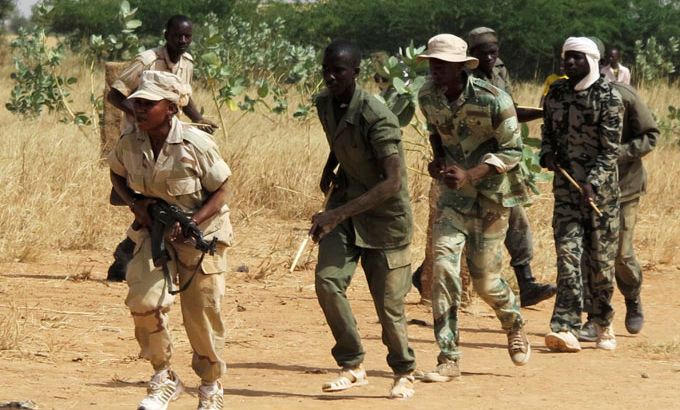UN approves Mali military intervention
Security Council unanimously approves two-track resolution that stresses diplomacy backed by African-led military force.

The UN Security Council has unanimously approved plans for an African-led military intervention in Mali aimed at reunifying the embattled North African state.
The resolution, approved in New York on Thursday afternoon, calls for political reconciliation, elections and the training of the country’s security forces before any operation is launched to reclaim Mali’s northern areas.
West African nations want to send a 3,300-strong force to oust armed groups that moved into the vast desert area and rolled out strict Islamic law after a military coup in Bamako in March created a power vacuum in the country.
When President Amadou Toumani Toure was forced from his position by a military cadre in mid-March, a coalition of the independence-seeking National Movement for the Liberation of Azawad (MNLA) and the reportedly al-Qaeda-linked Movement for Oneness and Jihad in West Africa (MUJWA) took advantage of political uncertainty to sweep across the northern region, capturing territory and towns including Gao and Timbuktu.
 |
| The area controlled by MNLA and MUJWA is vast |
Any military operation to rout the MNLA and MUJWA from an area the size of Texas will be difficult, analysts have warned.
“It is likely that [the MNLA and MUJWA] will avoid direct confrontation, in which case [the intervention force] would have no chance,” a senior French officer told the AFP news agency on condition of anonymity.
“If the force sent to deal with them is credible, [the MNLA and MUJWA] will certainly leave the towns and head for their sanctuaries in the mountain ranges close to the Algerian border… and that will become a different ball game to dislodge them.”
The draft resolution urges a two-track solution, stressing the importance of negotiations.
UN Secretary-General Ban Ki-moon has urged the region to keep pursuing peace talks first, and the UN’s special envoy for West Africa, former Italian prime minister Romano Prodi, has said the force would not be operational until September 2013.
“The prospects are not brilliant,” said a former intelligence chief, who also asked to remain anonymous.
The fighters will attack “when we’re not expecting it, in small groups that strike and quickly withdraw. That’s the basics of guerrilla warfare”.
The plans for a military force, originally hammered out by the Economic Community of West African States (ECOWAS), have been in hand for months, and would not involve direct intervention by Western forces.
The resolution was introduced by France – Mali’s former coloniser – before being approved by the 15-member council despite being lukewarm towards recent African requests for permission to go ahead.
“If we really want to eradicate the problem, we would have to use African and Western forces and lock down the borders – you realise what a job that would be – and sweep the whole terrain,” the former intelligence chief said.
“It’s not 3,000 men that are needed, it’s 100 times as many, and for a long time. We are far from what’s required. Take Afghanistan as a reference and you’ll understand.”